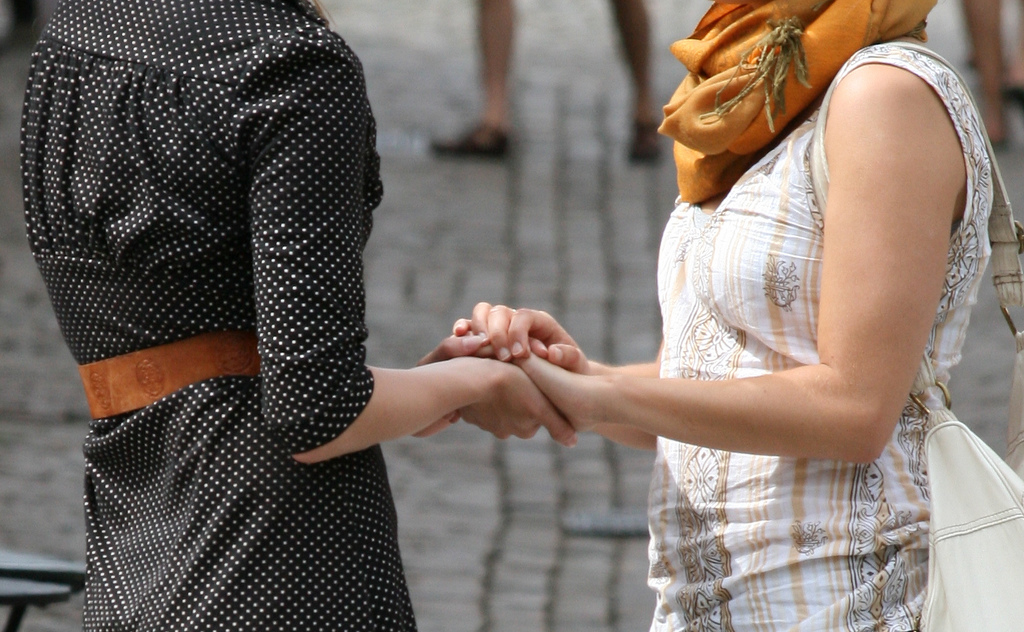The Art of "Friendship"
Historically, it’s what we used to call “being nice.”

Image: Wrote via Flickr
A lot of people in my life exist between “my favorite person” and “my enemy.” Tons. Most of the people I know. Some teeter more towards “favorite person” and they include “people I admire,” “people who’ve nicely told me I have something in my teeth,” and “fellow fans of Dolly Parton.” Then there are people on the other end of the spectrum, like the woman on twitter who keeps following me so I follow her back and then she unfollows me, which I suspect is a weird power-ratio thing she has going for her. The point is is that people span the spectrum and 98% of those people, the ones in the middle don’t need you to detail where exactly they fall.
And in not disclosing exactly where they fall, you have taken the first step in mastering the art of fake friendship. Congratulations. Have some cucumber mint water and relax. First of all, dispel from your mind that fake friendships are bad. They aren’t! You’re confusing them with performative friendships which live on Instagram and in the way-too-loud-for-how-funny-that-joke-was laughs of two supposed BFFs. Performative friendships let onlookers know the individuals are doing alright, great in fact, incredible actually. They’re an outward display. Fake friendships however are private contracts you enter into with another person where you both agree to just be civil. Historically fake friendships are what we often just call “being nice.”
You might be thinking, then why not just call it being nice? Bless your heart. These days being nice is the antithesis of keeping it real and in 2017 we were called forth to keep it real. Sometimes we kept it real and weren’t nice for excellent reasons. Courageous victims kept it real and outed their abusers. Fuck manners, get those assholes out of there. But on the other end of the spectrum, Nazis were being their true selves and picked up a few tiki torches on the way to their own keeping-it-real parade.
In the tense political climate we’re in, it is understandable to want to throw being nice and subsequently fake friendships out the door. But I think it actually saves us mental energy and time better spent fighting aforementioned Nazis. Most of the people nearing the “my enemy” side of the spectrum can be described as “annoying,” “lies a lot on social media about inconsequential things,” or “thinks Ellen is woke.” These are the people to maintain fake friendships with. It isn’t worth keeping it real with them. They don’t deserve a public dragging. Frankly, a lot of the times they don’t deserve a private talking to. They’re just people you have to coexist with and why bother letting them know exactly how you feel about them?
What are the benefits of fake friendships with these sorts of people? They might bring you treats at work. Perhaps they have to give up their tickets to a cool basketball game (is it clear I don’t go to basketball games because I describe them as “cool”?) and they run into you with said tickets. Maybe they one day learn there is more to feminism and queer culture than Ellen and become more well-rounded and your fake friendship can evolve into a real one.
Of course there’s the chance they never change and they are forever annoying, in which case I say there are literal Nazis in the streets. You can punch a lot more of those guys if you can fake laugh through a fake friend’s terrible story.
FAKES is The Awl’s year-end holiday series for 2017. You can read the whole collection here.
